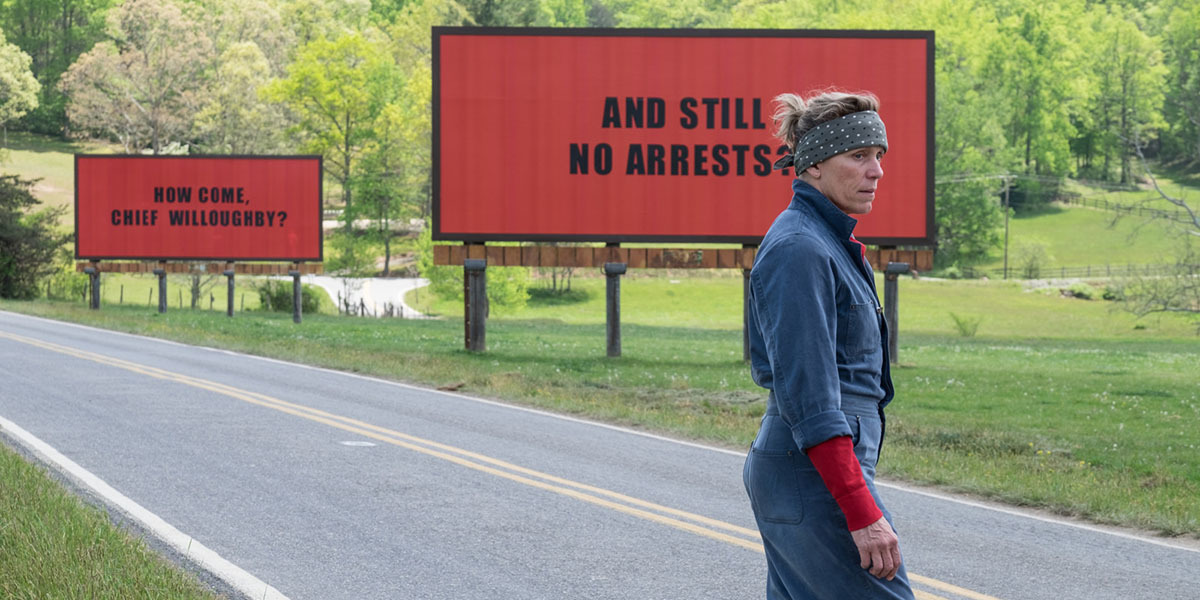by Chris Feil
Three Billboards Outside Ebbing, Missouri unfolds in typical fashion for writer/director Martin McDonagh: unspeakable violence provides a backdrop to profanity of everyday people. Here McDonagh provides us one of his most righteous heroes in Mildred Hayes, a mother grieving the brutal murder of her daughter and the local police’s inability to bring justice. Verbal fireworks and bloody consequence is to be expected.

The film is a somewhat mixed bag of risky McDonagh material, the politics of the piece getting somewhat muddled by his trademark unPC hilarity. While the author’s work often presents a tricky relationship between bitter honesty and dark humor, here the two almost compete - it’s not a hypocritical film, but the coherence of thought is not fully synced. But in Missouri his writing is undercut with complicated feeling more than ever before, musing on the state of a bruised and systemically unjust middle America.
McDormand moves with a biblical rage, less unhinged in her wrath than aggressively grinding those hinges to their full creaky rusted abrasiveness. It’s not just that her verbal dispatching of Billboards’ indifferent men is quote and gif ready (oh, but there will be plenty of that), but Mildred taps into growing cultural outrage that makes McDormand’s work all the more satisfying. She is exhaustive, exhausted, and exhausting; symbolizing a monolithic anger and giving a performance equally as imposing.
And yet she remains quite torturously human. McDonagh’s work often provides his actors with moments of fleeting, ironic humanity amid his perverse satires, but McDormand holds both of the film’s tragicomic elements in equal measure. It has been the best performance I saw at TIFF and the year thus far.

The rest of the ensemble is filled with lively work from the likes of Woody Harrelson, Peter Dinklage, and Lucas Hedges. (Yes the film is essentially a man’s world before McDormand eviscerates them all.) Also a standout is Sam Rockwell as Officer Dixon, Mildred’s foremost adversary and a quintessential McDonagh dipshit. His regretful delivery of Dixon’s shortcomings does much to humanize a fairly contrived arc that rushes to redeem him. His chemistry with McDormand is one of the most subtly layered pairings in McDonagh’s stacked history, reaching for complexity even as the script asked for easy transitions or base laughter.
Ultimately a film about the limits of compassion when it challenges cultural, political, and personal allegiance, Three Billboards is dense and likely divisive. In its caustic attitude, there is also a more sober summation about human nature that’s somewhat brave in its evasiveness of conclusive plotting. Perhaps more admirable in what it attempts to discuss than how it discusses it, the film is likely to inspire even more interesting conversation in the audience - it almost begs for debate and reassessment.
Grade: B- (Frances McDormand: A)